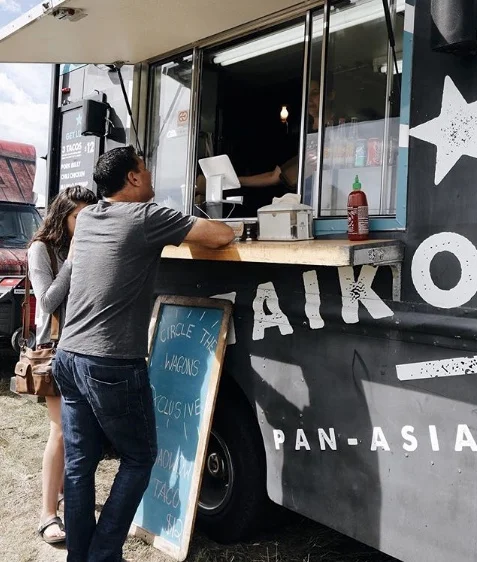It may come as a surprise, but food trucks are inherently less wasteful than traditional restaurants in many ways. Once they arrive at their destination, they use only a fraction of the utilities that larger brick and mortar restaurants use. Food trucks must also contend with unique challenges, such as limited space for food and supplies (including water) forcing them to conserve as much as they can and making them highly aware of waste. When it comes to overall emissions, there doesn’t appear to be a definitive answer as to which setup comes out ahead.
Biodegradable or Compostable? Which takeout container is “greener"?
By Jeanelle d'Eon
Labelling can be one of the most confusing aspects when looking for an environmentally sustainable product. When in comes to takeout containers, the terms "biodegradable" and "compostable" dominate in popularity and cause plenty of confusion. While these two descriptors may seem similar (even interchangeable), they can mean very different things and have major differences when it comes to the end of the product's life cycle.
Truly biodegradable products (such a paper-based takeout containers and wooden utensils) have the ability to break down completely in nature with the help of living organisms like bacteria, or they can be composted in a simple backyard composter. Although they break down easily in the right conditions, if they end up in landfill, they will produce methane (a potent greenhouse gas) during the breakdown process due to lack of oxygen. So it is ideal to ensure there is a proper processing facilities and receptacles in place to minimize the amount of these products that end up in landfill.
Here's where it gets complicated: not all "compostable" food service products are biodegradable. Many newer products that are labelled as "biodegradable" or "compostable" (such as bio-based plastics), require industrial composting facilities to break them down. Unfortunately, not all municipalities have these facilities, so many of these products end up in the landfill where they will not break down. Or, if they do, it's estimated to take a few hundred years, or more.
Essentially, truly compostable, non-plastic products are a more environmentally sustainable choice, (ideally made from recycled paper-based products), but there are many things to consider. When it comes to choosing a take out container, restaurateurs should consider a few key things:
Does my municipality have industrial composting facilities?
Are my patrons likely to dispose of these products properly, or will most of them end up in landfill?
Considering the above questions, what product will have the least harm on the environment?
100% recycled, paper-based take out containers and wood-based utensils are a few of our preferred options. What type of container are you using in your restaurant, and why?







